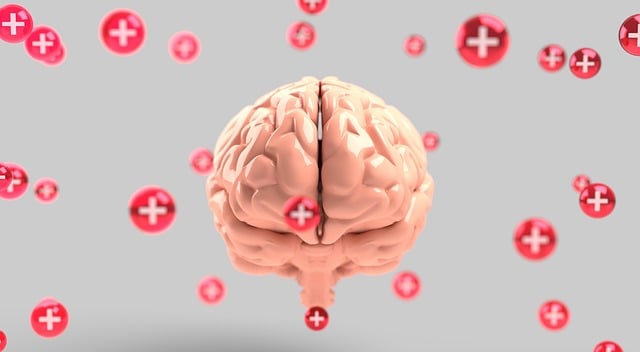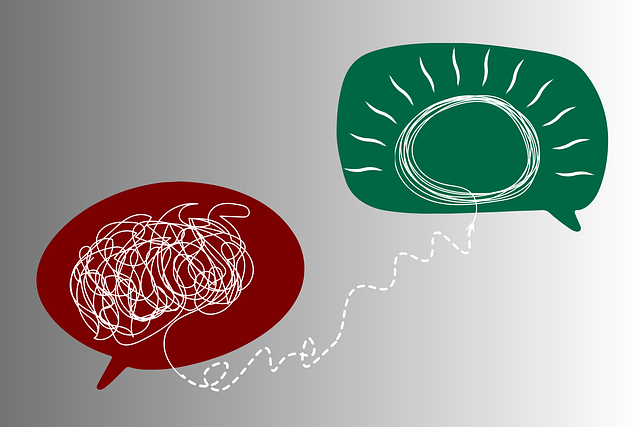Louisville's adolescent and teen therapy programs offer crisis intervention and personalized guidance using evidence-based practices like Mental Wellness Journaling Exercises and Compassion Cultivation. These programs empower youth to build resilience, enhance self-awareness, and cultivate healthy habits through tailored goalsetting strategies and regular feedback mechanisms. Marketing efforts utilizing digital platforms and community partnerships dispel stigma, while data-driven evaluations track KPIs to measure success in alleviating common mental health challenges among teens. Long-term benefits include improved academic performance and better relationships, ensuring comprehensive and safe program delivery.
In the dynamic city of Louisville, addressing mental wellness among adolescents and teenagers has become a pressing yet promising initiative. This article explores the development of tailored coaching programs designed to support this vulnerable demographic. We delve into the understanding of the need for such interventions, highlighting the unique challenges faced by young individuals in a fast-paced urban environment. By examining key components, implementation strategies, and evaluation methods, we aim to showcase how Louisville can revolutionize adolescent and teen therapy through effective coaching.
- Understanding the Need for Mental Wellness Coaching in Adolescence and Teenagem in Louisville
- Designing Effective Programs: Key Components of a Successful Coaching Intervention
- Implementing and Marketing Louisville Adolescent and Teen Therapy Coaching Programs
- Measuring Success: Evaluating the Impact and Long-term Benefits for Young Individuals
Understanding the Need for Mental Wellness Coaching in Adolescence and Teenagem in Louisville

In Louisville, recognizing the unique challenges faced by adolescents and teenagers is essential to fostering a healthy and supportive environment. The transition from childhood to adulthood can be a tumultuous period, often marked by increased stress, anxiety, and emotional turmoil. Many young individuals struggle with self-identity, peer pressure, academic pressures, and family dynamics, all of which can contribute to mental health issues if left unaddressed. Louisville adolescent and teen therapy programs play a pivotal role in providing much-needed Crisis Intervention Guidance, helping youth navigate these complexities and develop essential coping mechanisms.
Mental wellness coaching emerges as a powerful tool within these therapeutic frameworks, offering personalized support tailored to each teenager’s unique needs. Through evidence-based practices and innovative approaches like Mental Wellness Journaling Exercise Guidance, coaches empower adolescents to build resilience, enhance self-awareness, and cultivate healthy habits that promote mental well-being. By integrating coaching into the fabric of Louisville’s youth support systems, we can ensure that today’s young people are equipped with the skills necessary to thrive in a rapidly changing world.
Designing Effective Programs: Key Components of a Successful Coaching Intervention

Designing Effective Programs requires a multifaceted approach that caters to the unique needs of adolescents and teens in Louisville. A successful coaching intervention should incorporate several key components, such as tailored goalsetting strategies, evidence-based practices like Compassion Cultivation Practices, and regular feedback mechanisms. Mental wellness coaching programs must be adaptable, addressing not just symptoms but also underlying factors contributing to stress, anxiety, or depression.
Integrating Burnout Prevention Strategies for Healthcare Providers can enhance the sustainability of these programs. By fostering a supportive environment that encourages open communication, self-care, and resilience, coaches can help young individuals navigate their mental health journeys effectively. Additionally, advocacy efforts centered around Mental Health Policy Analysis and Advocacy ensure that the needs of adolescents and teens in Louisville are reflected in local and national policy decisions, ultimately improving access to quality mental wellness coaching services.
Implementing and Marketing Louisville Adolescent and Teen Therapy Coaching Programs

Implementing Louisville Adolescent and Teen Therapy coaching programs requires a strategic approach to reach and engage the target demographic effectively. With a growing recognition of mental health issues among youth, there is a pressing need for accessible and tailored interventions. These coaching programs can be designed to address common challenges faced by adolescents, such as stress management, self-esteem enhancement, and emotional regulation skills. By integrating evidence-based techniques into these sessions, professionals can foster a safe space for teens to explore their emotions and develop coping strategies.
Marketing plays a pivotal role in ensuring the success of these initiatives. Utilizing digital platforms and community partnerships, Louisville’s Adolescent and Teen Therapy coaching programs can gain visibility. Targeted social media campaigns and collaborations with schools, community centers, and local influencers can help dispel stigma and encourage teens to seek support. Moreover, highlighting the benefits of mental health education programs design tailored for this age group can attract interested participants. In line with broader Mental Health Policy Analysis and Advocacy efforts, these coaching initiatives contribute to a holistic approach by promoting Emotional Healing Processes accessible to Louisville’s adolescents and teens.
Measuring Success: Evaluating the Impact and Long-term Benefits for Young Individuals

Evaluating the success of mental wellness coaching programs is a critical aspect of ensuring their effectiveness and long-term benefits for young individuals. This process involves meticulous tracking and analysis of key performance indicators (KPIs) to gauge progress and impact. At Louisville Adolescent and Teen Therapy, we utilize a multi-faceted approach that includes both qualitative and quantitative methods. This may involve pre and post-program assessments, client feedback surveys, and interviews to understand the tangible and intangible changes in mental wellness.
By employing these strategies, our programs can demonstrate their value in improving symptoms of anxiety, depression, stress, and other common mental health challenges among adolescents. Moreover, we consider the long-term implications, such as enhanced resilience, improved academic performance, and better relationships, which are crucial for fostering healthy development. Effective risk management planning for mental health professionals, including thorough risk assessments, is integrated into our processes to ensure client safety and program integrity.
Louisville’s adolescent and teen therapy coaching programs have the potential to significantly impact young people’s mental wellness. By incorporating key components such as personalized goal setting, evidence-based techniques, and a supportive environment, these programs can effectively address the unique challenges faced by teens. Through strategic implementation and targeted marketing, Louisville can become a leader in accessible mental health support for its youth. Continuous evaluation and measurement of program success will ensure that these interventions remain impactful and tailored to the evolving needs of Louisville’s adolescents and teenagers.














